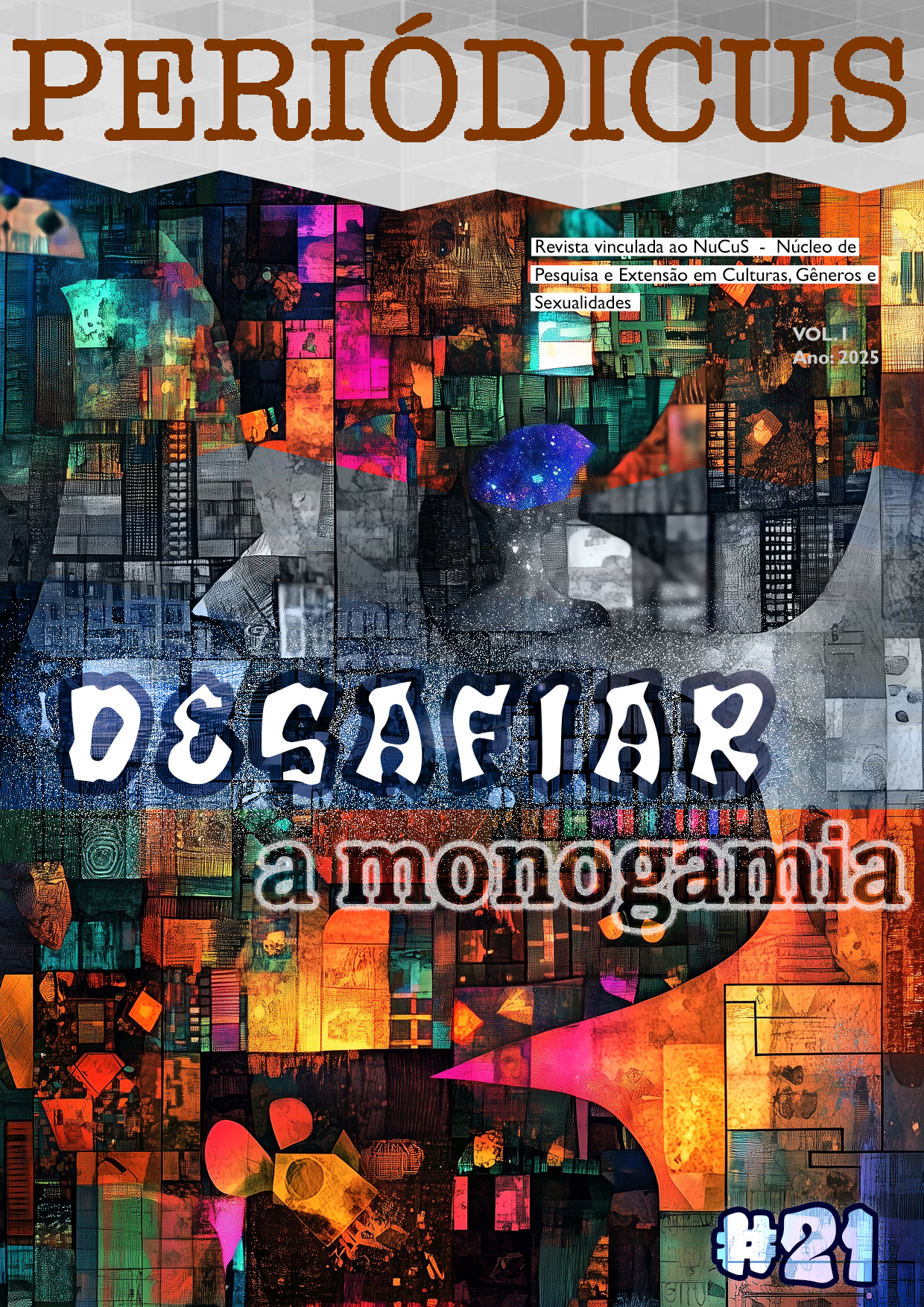The subjective production of family in the polyamorous experience of a throuple relationship
DOI:
https://doi.org/10.9771/peri.v1i21.58570Abstract
The specific phenomenon of this writing was the subjective production of family in the experience of a concomitant and consensual affective-sexual relationship between the three people participating of this study. A polyamorous arrangement of the closed group that been named of “throuple” in Brazil. At the time of the fieldwork, the throuple had completed four years in this polyamorous relationship configuration. Qualitative Epistemology and the constructive-interpretive method reference the analysis procedure adopted. From the investigation carried out it was considered that the way in which the throuple subjectively configures their family and their relational arrangement makes it possible to place polyamory in a position of ambiguity with monogamy, with emphasis on the value of polyfidelity, which is present in the relational dynamics of the throuple, and for the ideals of equality and honesty that come into focus on the subjective configuration of family and the polyamorous relationship between the people participating in this research.
Downloads
Downloads
Published
How to Cite
Issue
Section
License
Copyright (c) 2025 Camila Ribeiro Castro Soares

This work is licensed under a Creative Commons Attribution-NonCommercial 4.0 International License.
Authors who publish in this journal agree to the following terms:
Authors retain copyright and grant the journal the right of first publication, with the work simultaneously licensed under a Creative Commons Attribution Noncommercial License that allows the work to be shared with acknowledgment of authorship and initial publication in this journal, but prohibits commercial use.
Authors are authorized to enter into separate additional contracts for non-exclusive distribution of the version of the work published in this journal (e.g., publishing in an institutional repository or as a book chapter), with acknowledgment of authorship and initial publication in this journal.
Authors are permitted and encouraged to publish and distribute their work online (e.g., in institutional repositories or on their personal website) at any point before or during the editorial process, as this can generate productive changes and increase the impact and citation of the published work (see The Effect of Open Access).








